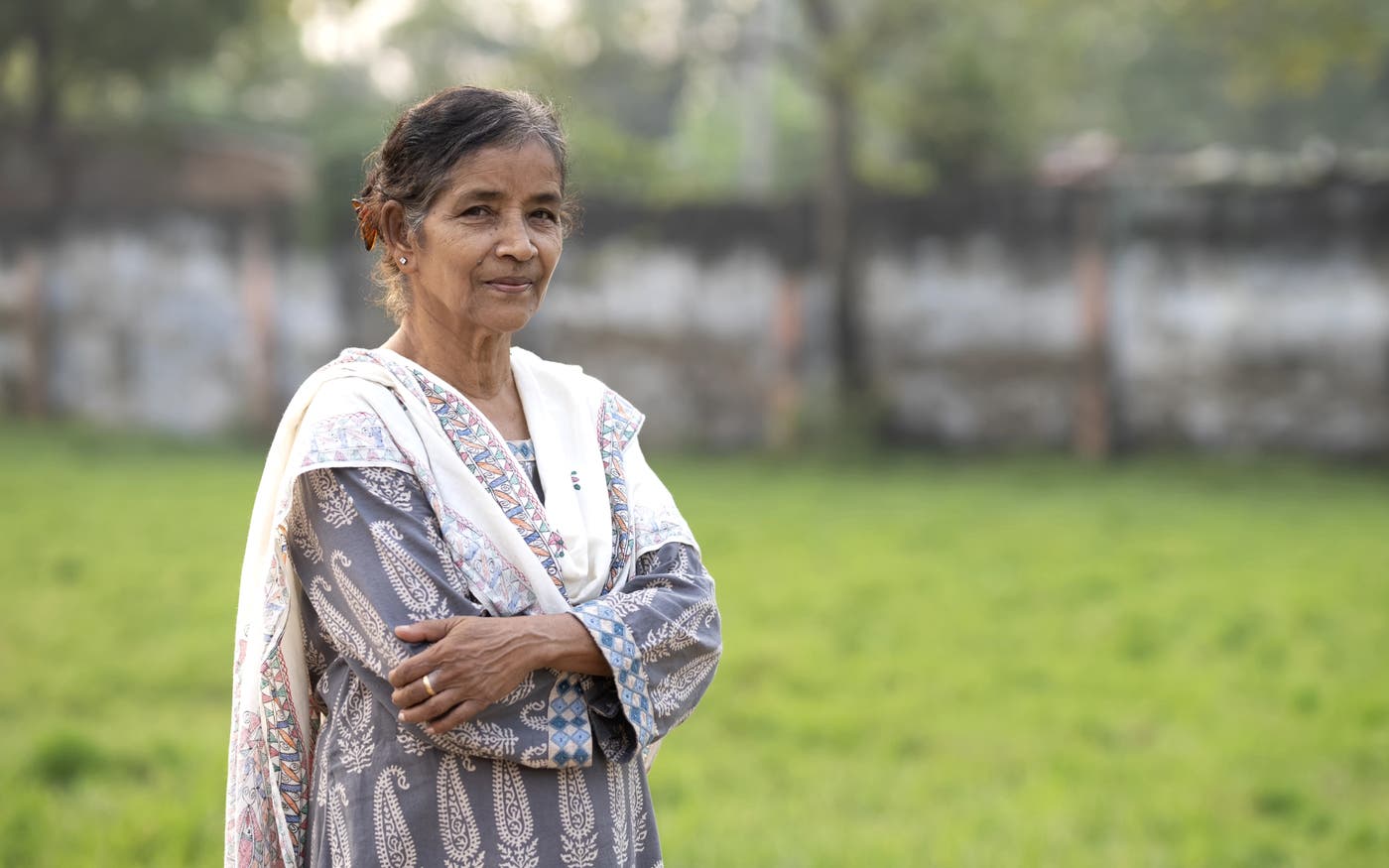
Uplifting education
Inspiring girls to believe in themselves
This hero’s school empowers girls to see their potential for greatness.

As a middle school student in India, Sudha Varghese was paging through a magazine when she saw a photo that changed her life. It was a picture of a ramshackle hut on a roadside in Bihar State. This was where some of India’s poorest families live, a caption explained.
The image stuck with her. Raised in a prosperous family in Kerala, India, Sudha couldn’t imagine living in such conditions. Something, she thought, needed to be done to help the poor. And she decided she would be the one to do it.
“I decided all my efforts, all my resources, all my time, all my love, whatever I have, all that will go for the poor people who are needy,” she said.
Sudha’s family didn’t support her plans. But she didn’t give up. She joined a religious order, became a Catholic nun, and started doing charitable work. A few years later, disappointed that she wasn’t doing enough to help the poorest, Sudha struck out on her own. She moved to Bihar to live in a community like the one she saw in that photograph.
The people who lived there, she learned, were the Musahar. Musahar literally means “rat eaters.” In India’s earlier caste system, they were viewed as the “untouchables.” They could not own land and worked as poorly paid farm laborers. Most never had the opportunity to go to school. (You can read more about my visit in 2010 to a Musahar village in India here.)
Sudha asked some Musahar villagers for a place to stay. They offered her a grain shed. And so began a lifetime of work to improve their lives.
Sudha focused her efforts on the Musahar women and girls. They suffered from discrimination, and often violence. Sudha worked with them so that they could stand up for their rights. She helped them get funding for hand pumps so they could have access to clean water. She also encouraged them to ask for higher wages.
But the biggest challenge Musahar women faced, Sudha says, was how they had come to see themselves. Entering a room, they would look at the ground and always take a back seat. They thought they were not worthy of respect, she said.
Changing mindsets is never easy. And while she could work with the adult women, it was even more important to work with girls, she decided. They needed an education in a school that would help them redefine their self-image by believing in themselves and their potential for greatness.
No school like that existed, so Sudha decided to open one herself. She named it Prerna, which means “inspiration” in Hindi.
Prerna school offers reading, writing, math, history, and science. But Sudha wanted her students to learn how to stand up for themselves and be confident. So, she also added karate to the curriculum. The girls proved to be talented martial artists. Some have even competed in the world karate championships in Japan.
Sudha also teaches them yoga, drawing, painting, and singing. Her goal is to create well-rounded young women ready to pursue their dreams. More than 5,000 girls have graduated from her program.
During COVID-19, her school, like all schools in India, was forced to close for many months. Sudha and the other teacher tried to stay in touch as best they could through online classes, although many girls didn’t have access to mobile phones. They are in the process of restarting in-person learning this year.
Sudha also runs Nari Gunjan (“woman’s voice”), a nonprofit organization that provides education, literacy, vocational training, healthcare, and life skills for these women and girls in Bihar.
There is still much more work to be done to improve the lives of this community. Many families still live in poverty and are marginalized. But thanks to Sudha’s school and many efforts being made by the Bihar Government, Musahar girls are now pursuing their dreams of studying to become doctors, engineers, lawyers, and leaders in their community.
If a photographer came to Bihar today, a photo of a hut by the side of the road, like the one Sudha saw in a magazine decades ago, wouldn’t capture the story of the Musahar. What would, is a portrait of the young graduates of Sudha’s school. It would show them holding their heads high, looking straight into the camera’s lens, and inviting anyone who ever doubted themselves to believe in their own potential.


